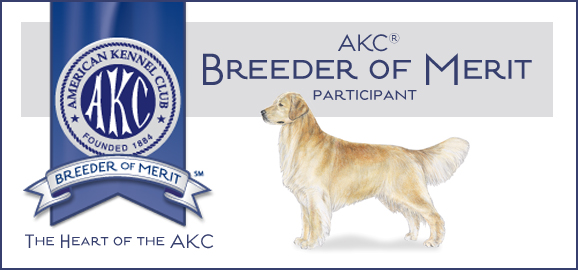Opinions on whether or not punishments should be part of a training program are strong. There are valid arguments on both sides of the “punishments or not debate”. We will discuss 10 reasons that we strongly believe that reward based training produces better results than punishments and why we believe that positive reinforcement dog training is better.

1. Side Effects From Improperly Given Corrections
Many reward based or positive reinforcement trainers talk about the number of clients coming to them with dogs that have emotional scars from inappropriately given punishments. These families had not intentionally harmed their dogs and more often than not the punishments were not severe. The families were simply following advice they had received either from traditional or “balanced trainers” or from out-dated books or TV shows. These families were trying to do what was best for their puppy.
The emotional scars from punishments are generally caused by the average dog owner’s lack of skill in ascertaining exactly how corrections might be affecting the dog. For dogs to avoid incurring side effects from corrections, the dog must understand what he did to cause the correction; he must know exactly how to stop the correction from recurring; and the correction must be precisely timed.
To be clear, we are not saying that punishments always (or even usually) cause side effects or emotional scars. However, we have talked to many people who have worked with dogs who have problems caused by poorly given punishments. We have also seen it first hand. It can and does happen; especially with people with little dog training experience.
2. Side Effects from Emotionally Charged Corrections
Further, punishments that are given in anger or that cause fear in a dog or that come from a place of domination can leave deep long-term emotional damage. Emotionally charged punishments can be more damaging than physically painful punishments. Harsh corrections given with an attitude of domination can even cause aggression.
3. Reward Based Positive Reinforcement Training Builds Confidence
Thirdly, dogs trained primarily with positive reinforcements are more confident than dogs trained primarily with punishments. Dogs love to work for rewards. Being successful builds confidence. Dogs who work because they fear a correction if they make a mistake can become timid. They do not have the drive to work that dogs trained primarily with rewards have.
Many punishment based trainers will set their dogs up for failure so that the dog will learn what is NOT acceptable. For example, they will recommend intentionally leaving shoes out on the floor so that a person has an opportunity to correct the puppy for picking them up. I do advocate what is commonly called “proofing” in the dog training world.
Proofing is a necessary part of dog training. However, training works far better when the temptations to fail are AFTER the puppy is thoroughly trained in the behavior; never before. When the temptations come at the right time and the puppy can successfully resist them, his confidence and his desire to please will grow.
Reward based trainers will set their dogs up for success so that the focus is on what IS acceptable instead of what ISN’T acceptable. Gradually the unacceptable behaviors will be replaced by the acceptable and the dog will build confidence in the midst of his success. Then, and only then, are you ready to “test” your dog to see if his behavior is solid in the midst of distractions and temptations. These distractions and temptations should be at an appropriate level so that your puppy will remain successful. The goal is not to cause failure, but rather to gradually make his successful behavior more solid, even in the midst of distractions.
Reward-based training builds on one building block of success after another. Punishment based training is built on fighting fires and correcting problems. Both types of training have the same ultimate goal. However, the two methods are totally different with regard to the foundation the training is built on. The type of training foundation will determine if training is building confidence or tearing it down.
4. Dogs Raised Primarily With Positive Reinforcement Develop a Stronger Bond to Their Person
Fourthly, positive reinforcement reward based training builds a relationship between a dog and a person. It makes a dog want to be with you, to try to please you, and to feel good when around you. Dogs trained primarily with rewards respect and want to follow their person. This respect is earned. It is not forced upon the dog by a “pack leadership” mentality. It is real and comes from the heart of the dog.
5. Reward Based Training is Fun For the Person
Reward based training is also fun for the person. Therefore, there is incentive for families to train their puppy more often. There is a tremendous thrill in watching a dog purposely try to figure out how to please you. It is not fun to constantly be doing battle with your dog.
6. Punishment Based Training Kills Motivation
Because punishment based training is not fun for the dog, it kills the motivation to train. Dogs trained primarily with punishments come back to training session after training session with the same old “do I have to?” attitude. Dogs trained primarily with corrections submit, but without the same happy attitude that a dog who is trained primarily with rewards.
7. Reward Based Training Builds Motivation
On the other hand, reward based training is extremely enjoyable for the dog. The more they train, the more they want to train. Reward based training creates a happy desire to work. Dogs trained primarily with reward-based training actively seek out opportunities for training. They work with drive and enthusiasm.
Dogs trained primarily with rewards enjoy training so much that every dog I’ve ever trained thinks about their training even when not training. My dogs and puppies leave a training session and ponder where they were successful and where they weren’t. Then they come back to the next training session having worked out in their own minds how to do better. This principle of reward based training is still mind-blowing to me, even after training for many years.
I started my own training career with traditional punishment based training because I didn’t know any better. I’ve learned first hand. Reward based training is FAR more motivational to a dog!
8. Reward Based Training Builds Trust
All dog’s crave the comfort of knowing that there is someone they can trust, someone who will be taking care of them even in stressful situations. A dog’s owner should be a source of comfort and strength during stressful situations. If training is primarily punishment based, a dog may not look to their person for strength and stability in times of stress.
For example, if a person should go into a scary environment with their dog, a dog trained with rewards will look to his person for affirmation that all will be okay. However, if your relationship is characterized by punishments, the last last thing the dog will want to do to see if “all is okay” is to look at you. He will instead be afraid that you will add more stress to an already stressful situation by punishing him if he doesn’t act exactly right.
9. Punishments Change Behaviors Only
Punishments will have an immediate effect on a dog. Corrections work in changing behavior. They bring a short term fix for behavioral problems. Often, that is all that people hope to attain. However, if you could have more, would you want it? If you could change more than just the behavior, would you change your training method in order to accomplish this? What if you could change the dog himself?
10. Reward Based Training Changes the Dog Himself
This is (in our opinion) the biggest reason for using reward based training. When correctly done, reward based training will change a dog’s desires, will channel a dog’s drive, and will change what a dog enjoys doing. In short, reward-based training will train a puppy to WANT to do what you want him to do, rather than merely training him to submit his will to yours.
Reward based training changes a dog from the inside out by changing his emotional make-up and what he enjoys doing. Punishment based training changes behaviors, but does nothing to change the dog himself. Punishment based training can be a quick fix for a behavior. Though correction based training usually appears to get the job done in terms of behavior, it does not address the roots of bad behaviors nor does it build an innate desire for good behavior. This fundamental change in the dog is the primary reason that our program at Summer Brook is built on reward-based training.
Related Posts
We use only positive reinforcement training with young puppies as well as in training a dog for competitive obedience. However, we understand both sides of the “Punishments or Not” debate including the reasons behind those who claim that positive reinforcement alone is not enough. For us, it is enough. However, we’ve written another post addressing the subject of whether or not punishments could EVER be helpful. See our page entitled Are Punishments Necessary to Train Your Dog.
For help in stopping bad behavior without using punishments, see our page entitled Stop Bad Behavior Positively.
Final Thoughts
Punishments are risky. Reward-based training is not. Change your dog to want to do what you want him to do. See our page on How to Use Positive Reinforcement in Dog Training to learn how. There will be no need for corrections. There will be no battle. You can have a harmonious, stress-free relationship with your dog! Your dog will want to be with you and will trust you, even in stressful situations. You will enjoy a well-mannered dog. Your dog’s desires will start to line up with yours. Is this not the reason we have dogs to begin with?

